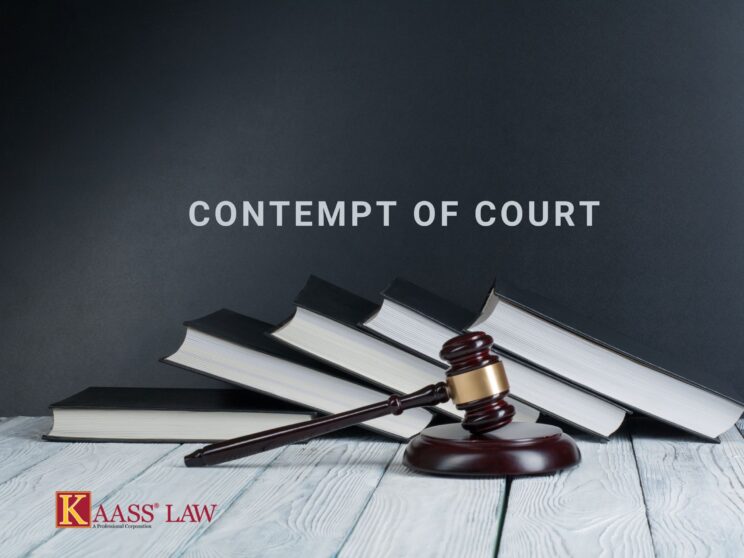Contempt of Court: California PC 166
In California, it is a crime to purposefully and intentionally violate a court order. California Penal Code Section 166 (PC 166) refers to a wide range of behaviors that are essentially disrespectful to the court and the court process. Here is the list of unlawful actions mentioned in the Penal Code.
- Court proceeding interruption in the direct view of the judge using disorderly, rude, or contemptuous behavior.
- Trial or hearing interruption overseen by a referee using disorderly, rude, or contemptuous behavior.
- Intentional and willful violation of a gang injunction order
- Making noise or otherwise disturbing the peace in a way that directly interrupts court proceedings.
- Intentional and willful disobedience of the written terms of a California or out-of-state court order.
- Publication of a grossly false or inaccurate report of a court proceeding.
- Intentional and willful resistance to a lawful court order.
- Refusal to be sworn as a witness or to comply with the judge’s requests during any court proceeding.
- Presenting unauthorized statements in mitigation or aggravation to a sentencing judge.
Elements of PC 166 Contempt of Court Crimes in California
Prosecutor must establish the following elements for convicting the defendant of contempt of court:
- Court issued a lawful written order to the defendant
- Defendant was aware of the court order
- Defendant had the ability to follow the court order
- Defendant deliberately violated the court order
Legal Defenses for California Penal Code Section 166 Charges
- Defendant did not mean to be in contempt and violate the court order
- Defendant was not aware of the court order
- Defendant did not have the ability to follow the court order
- The court order was issued unlawfully
- Defendant was falsely accused;
Penalties for Violating a Court Order
In California violation of PC Section166 is usually a misdemeanor offense. This means that in case the defendant is convicted for contempt of court he can be sentenced to:
- Up to six months in a county jail
- A Fine up to $1,000
- Misdemeanor probation
Aggravating Factors for Contempt of Court
Though there are certain violations that can result in more serious criminal penalties. The charges for contempt of court can be aggravated in case any of the following take place:
- Defendant violated an order of protection in a domestic violence case
- Defendant violated an order of protection in an elder abuse case
- Defendant had a prior conviction for stalking and violating an order of protection
- Defendant own or possess a gun or firearm in violation of an order of protection
- Defendant had prior convictions for violating a court order.
In case the defendant is found guilty in contempt of court and at least one of the above mentioned aggravating factors is present he can face:
- Up to one year in a county jail
- Up to three years in California state prison;
- A fine up to $10,000
- Additional criminal charges.

